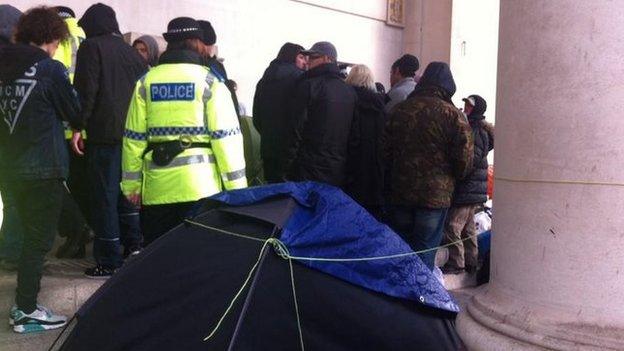What happened to the homeless from Gary Neville's hotel?
- Published
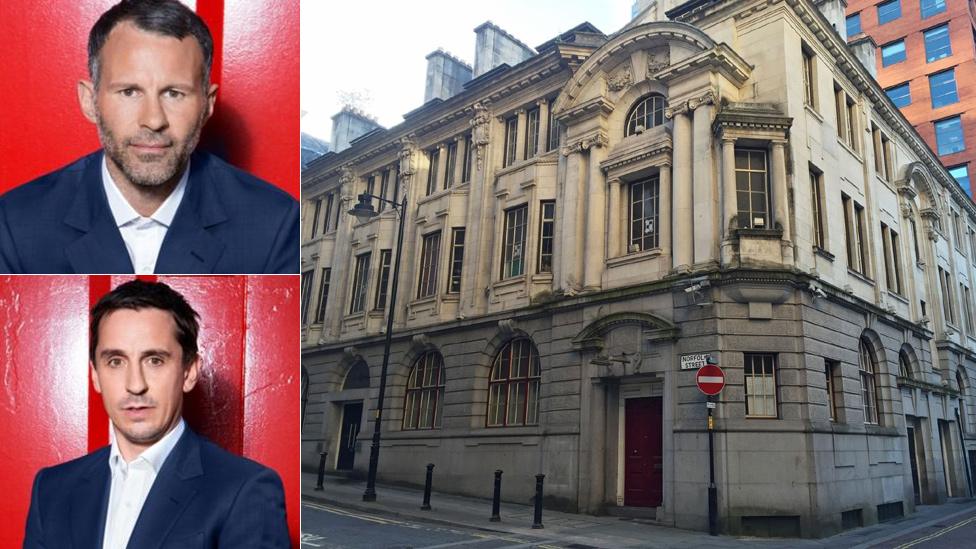
What happened to the squatters who were allowed to stay in a building owned by former footballers Gary Neville and Ryan Giggs?
The Manchester United legends hit the headlines before Christmas when they allowed homeless people who had set up camp in the former Manchester Stock Exchange - which Giggs and Neville are turning into a boutique hotel - to remain in the building until February when work there was set to begin.
Those renovations are now under way and the doors to the Grade II-listed building have been closed. Once they reopen, it will be a venue for the well-to-do rather than those down on their luck.
So did the gesture achieve anything?
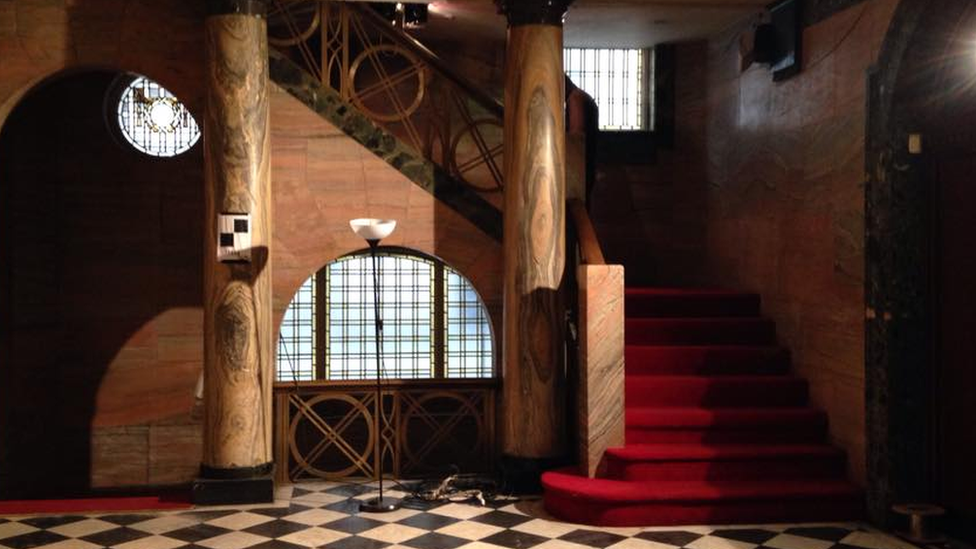
The interior of the former exchange building in Manchester
Arguably, it raised the profile of homeless people in the city.
The country's media descended on Norfolk Street, desperate for a look round.
The people staying at the Exchange - who admitted they had expected to be served with eviction notices rather than invited to stay - were thrust into the spotlight thanks to the footballers' actions.
Speaking on behalf of the former England international at the time of his goodwill gesture, Neville's spokesman said there was "a real-life problem we have with people living on the streets of our city".
"Nobody should be sleeping on the street."
Shortly after Neville's announcement, and with national attention focused on the issue, the city council opened up three empty public buildings to be used as night shelters. It was a far cry from the summer, when homeless camps were banned from the city centre.
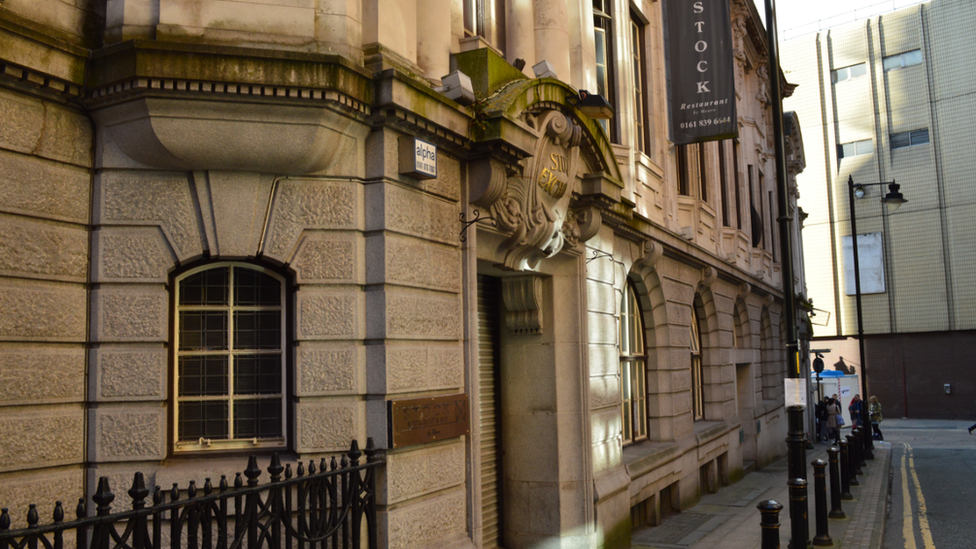
The former stock exchange will be turned into a boutique hotel when building work begins in
The Stock Exchange was not just used as a rent-free place to sleep - a partnership between the Riverside Service, external, Gary Neville and Manchester City Council was established to make sure the building was used as a help centre.
Access was arranged to services such as mental health, drug and alcohol support. Hot meals and showers were available.

Case study: Peter
Peter said he found himself at The Stock Exchange following a family breakdown that left him without a home over Christmas.
The support given to Peter when he was at the Exchange helped him get a flat, so he now has somewhere permanent to live.
He said he is now taking steps to rebuild his relationship with his daughter and reconnect with his family.

According to Manchester City Council, when the time came for the squatters to leave, only two people remained in the building, both of whom left voluntarily. One of them refused help, the council said, while the other was a failed asylum seeker whose fate is unknown.
Of the 40-odd people in total who stayed there, less than half were actually homeless - the others were protesters, helpers and campaigners. They were "asked to move on", the council said.
Eleanor Watts from the Riverside charity said: "As part of our range of support for people living at the Stock Exchange, we have helped 19 people into move-on housing [hostels and supported living] in the city."
Despite this assistance, the latest figures from homeless charities estimate about 80 people in Manchester are sleeping rough every night.
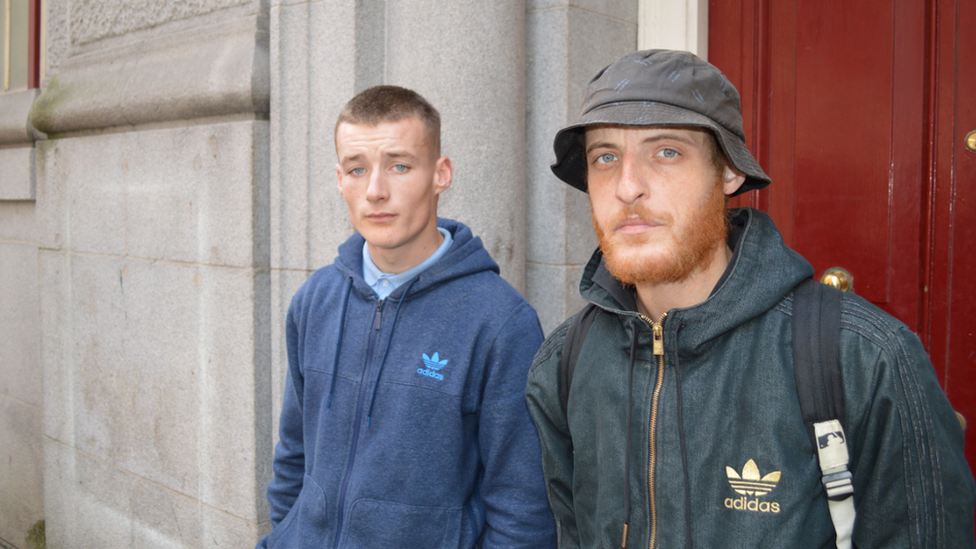
Wes Dove (right) became homeless after his relationship with his girlfriend broke down. He is now in "move-on housing" in the city
Paul Andrews, who is in charge of adult health and well-being at Manchester City Council, said: "While shelter and a roof over their heads is obviously a good start, what we're working together to achieve is about helping and supporting people to get off the streets.
"I am pleased to say that this is a relationship Gary Neville is keen to develop to ensure a lasting legacy for the city from the work which is going on here."
- Published19 October 2015
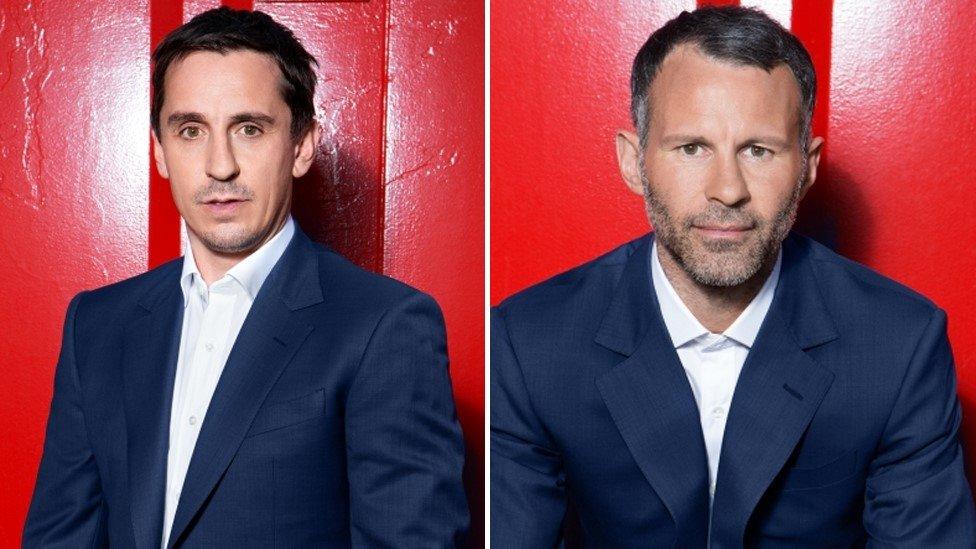
- Published19 October 2015
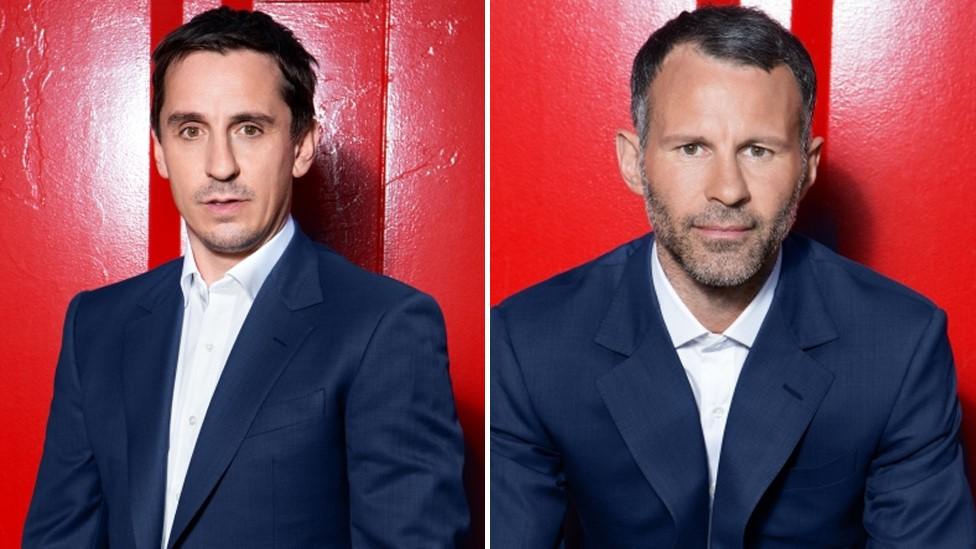
- Published19 May 2015
